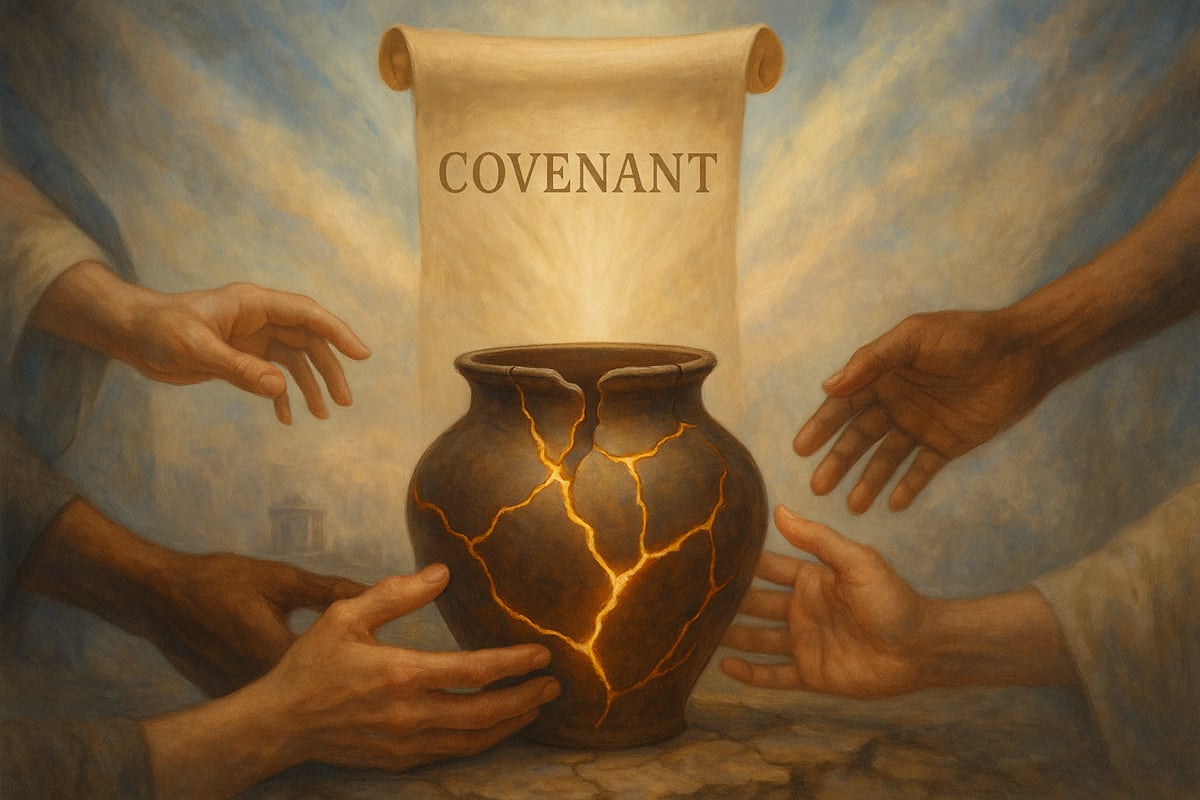TLDR: This blog explores the concept of covenants as promises made with God, their historical significance, and their transformative role in personal healing and recovery from trauma, particularly in the context of sexual abuse survival.
_______________________________________________
In the journey of healing from trauma, particularly for survivors of sexual abuse, the concept of covenants can play a significant role. This blog post delves into what covenants are, their historical context, and how they can facilitate personal healing and recovery.
What Are Covenants?
Covenants are essentially promises made with God. The term has deep roots in religious texts, particularly in the Bible, where it describes agreements between God and individuals. These agreements often involve commitments from both parties, where one promises to uphold certain laws or principles, and in return, God offers protection, guidance, and blessings.
Historical Context of Covenants
Covenants have existed since ancient times, with notable examples found in the Old Testament. One of the most significant figures associated with covenants is Abraham. During Abraham's era, life was precarious, and many people died young due to illnesses or injuries that could not be treated effectively. This often left families without support, as property and resources were typically controlled by men.
In response to these challenges, God communicated with Abraham about the importance of covenants. These agreements were often sealed through blood rituals, symbolizing deep trust and commitment. For instance, two individuals would make cuts on their hands and shake hands, signifying their promise to care for each other's families in the event of death. This act was a profound expression of love and selflessness.
The Nature of Covenants with God
In the context of Abraham's covenant, he was asked to promise to keep God's laws. In return, God assured Abraham that He would take care of him and his family, providing a path for them to return to Him in the afterlife. This reciprocal relationship highlights the trust and faith involved in making covenants with God.
Personal Experience with Covenants
As a survivor of sexual abuse, I have found immense strength and healing through the covenants I have made within the framework of my faith, specifically in the Church of Jesus Christ of Latter-day Saints. These covenants are not merely rituals; they are deeply personal commitments that have guided my life.
Many individuals, including members of my family, have chosen to abandon their faith, often out of anger or disappointment with God. However, I made a conscious decision to lean into my faith, to test the validity of these covenants, and to see if they could truly aid in my healing process.
By actively engaging in these covenants, I have experienced a profound sense of hope and healing. I have managed to navigate life without resorting to drugs or alcohol, which many survivors often struggle with. The strength I have drawn from my covenants has been instrumental in my recovery journey.
The Universality of Covenants
It is important to note that covenants are not exclusive to any one faith or belief system. Regardless of where you are in your spiritual journey, you can create your own covenants with God. The essence of these promises lies in the sincerity of your commitment and the faith you place in the divine.
Conclusion
Covenants serve as powerful tools for healing and personal growth. They provide a framework for individuals to connect with God, offering hope and support in times of distress. For survivors of trauma, embracing the concept of covenants can lead to transformative experiences, fostering resilience and a renewed sense of purpose. Whether through formal religious practices or personal commitments, the act of making covenants can be a profound step towards healing and recovery.
